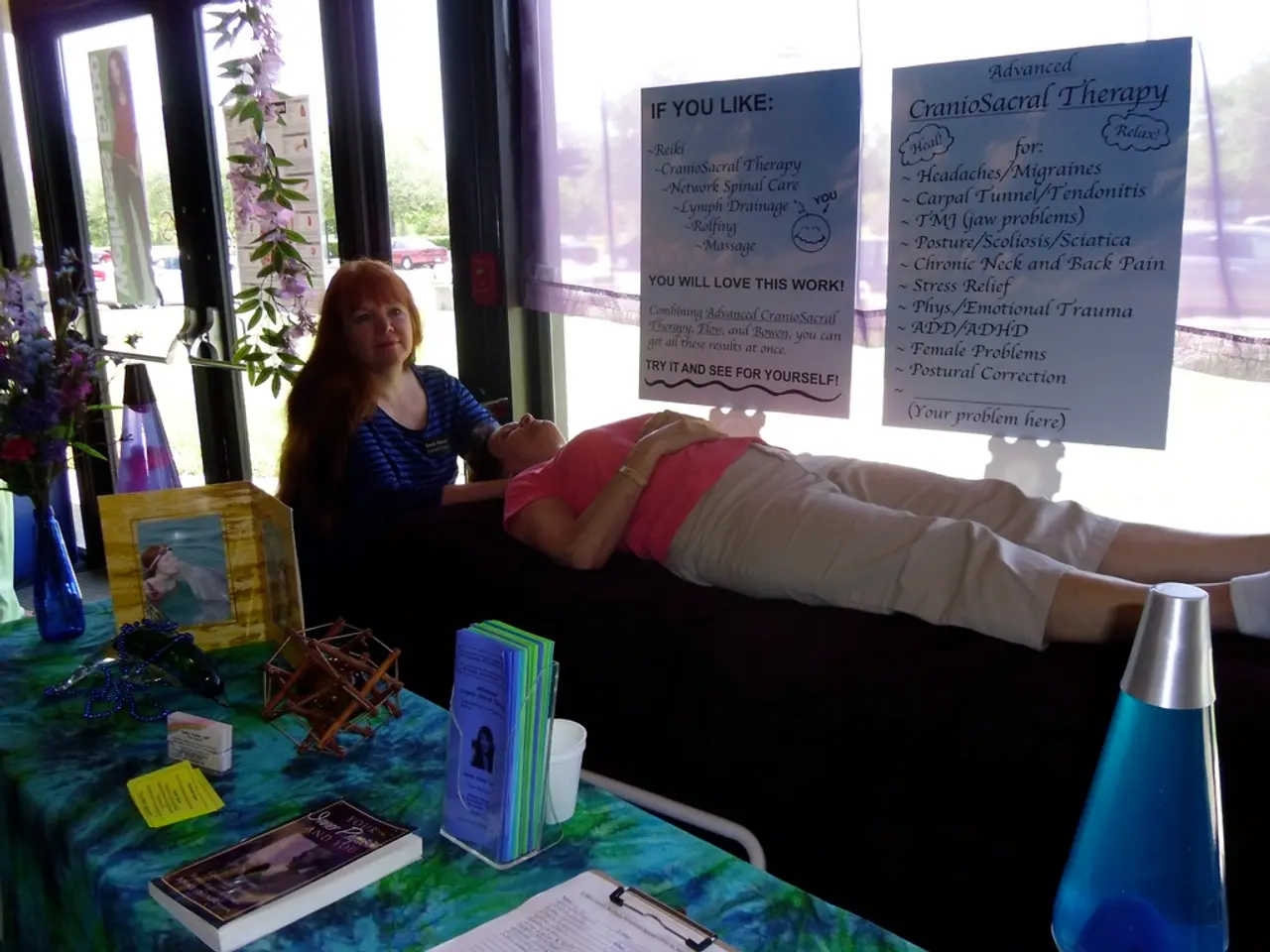Distinguishing Psychosis and Schizophrenia: Key Insights into Their Differences
Psychosis and schizophrenia are terms often used interchangeably, but they represent distinct concepts in the realm of mental health. Psychosis is a symptom complex, characterised by hallucinations, delusions, and disorganized thinking, which can occur in various mental health conditions, including schizophrenia, but is not a diagnosis itself [4].
On the other hand, Schizophrenia is a chronic psychiatric disorder that fundamentally involves psychosis, with a specific set of symptoms and functional impairments.
Key Differences Between Symptoms
| Aspect | Psychosis (as a symptom) | Schizophrenia (a disorder featuring psychosis) | |--------------------|----------------------------------------------------------------|-------------------------------------------------------------------------| | Hallucinations | May include auditory, visual, or other sensory hallucinations, depending on the cause [4][2]. | Auditory hallucinations are most typical, with prominent delusions such as persecution or grandeur [1]. | | Delusions | Present in many psychotic states as fixed, false beliefs [4]. | Prominent, often bizarre delusions are a core feature of schizophrenia [1]. | | Cognitive symptoms | May or may not be present depending on the underlying cause. | Marked cognitive disorganization and impairment in thought processing are common [1]. | | Mood symptoms | Typically absent unless psychosis is part of a mood disorder. | Mood symptoms are usually less prominent and secondary to psychosis [1]. | | Social functioning | Variable, depending on the underlying cause. | Often involves steady, progressive social deterioration and withdrawal [1]. | | Negative symptoms | Not always present. | Pronounced negative symptoms like anhedonia (lack of pleasure) and avolition (lack of motivation) are hallmark features [1]. | | Onset patterns | Can be sudden if due to medical conditions or substance use. | Typically gradual with a prodromal phase developing over months or years [2]. |
Differences in Treatment
| Aspect | Psychosis (symptom treatment) | Schizophrenia Treatment | |-------------------------|------------------------------------------------------------------------|--------------------------------------------------------------------| | Primary approach | Depends on underlying cause (e.g., medical illness, substances). Treat medical causes as priority [2]. | Antipsychotic medications are central to managing psychotic symptoms [3][1]. | | Mood symptoms | Treat accordingly if related to mood disorders (e.g., mood stabilizers). | Mood symptoms not primary but may be addressed if present. | | Psychosocial interventions | May be used for symptom relief depending on cause. | Comprehensive psychiatric care including psychosocial therapy, cognitive behavioral therapy, and rehabilitation [3]. | | Medical workup | Extensive workup to identify physical causes when psychosis is present without prior psychiatric history [2]. | Generally, workup excludes medical causes; focus on psychiatric management [2]. | | Long-term management | Often short-term if caused by acute medical condition or substance use. | Long-term, often lifelong management with medication and support [1][3]. |
Summary
Psychosis refers broadly to the hallmark symptoms (hallucinations, delusions) and can appear in many contexts, including medical conditions, substance use, or primary psychiatric disorders. Schizophrenia, on the other hand, is a specific chronic mental illness characterized by persistent psychosis combined with significant cognitive impairment, negative symptoms, and long-term social dysfunction.
Treatment of psychosis focuses primarily on addressing its cause, whereas schizophrenia requires ongoing use of antipsychotic medications and comprehensive psychiatric care [1][2][3]. This distinction is crucial for accurate diagnosis and effective treatment planning.
Comparatively, less than 1% of the population of the U.S. has schizophrenia. Anyone can develop psychosis at some point in their life due to factors such as medications, mental health conditions, dementia, and drug or alcohol misuse. The exact number of people living with psychosis is unclear, but some estimate that about 0.5% develop psychosis each year in the United States.
The prodrome phase involves the early signs of psychosis, such as changes in how a person thinks about themselves and changes in feelings and behaviors, and can last several months to over a year. The recovery phase is where treatment starts to help reduce the severity of symptoms, and many people can successfully reach this stage when they begin treatment. The acute phase occurs when a person starts to have psychosis symptoms, such as hallucinations, delusions, and very odd or disorganized speech or behaviors.
Psychosis is a collection of symptoms that affect the mind and cause a loss of grasp on reality, often a symptom of an underlying mental health condition like schizophrenia. Schizophrenia, in turn, is a mental health condition that affects a person's behavior, thoughts, and feelings.
Experts often break down psychosis into three phases: The prodrome phase, the acute phase, and the recovery phase. A multidisciplinary team is beneficial in treating both psychosis and schizophrenia, as they can help share treatment decisions and include the person and their family directly in the treatment.
Schizophrenia treatment, similar to that of psychosis, often involves supervised use of antipsychotic medications, psychotherapy, such as cognitive behavior therapy, and education for caregivers and family members.
A person with schizophrenia experiences auditory hallucinations and prominent, often bizarre delusions, which are not typically found in a person experiencing psychosis as a symptom [1]. In health-and-wellness discussions focusing on mental health, it's essential to understand that schizophrenia is a distinct disorder with specific cognitive and functional impairments, whereas psychosis is a symptom complex that can manifest in various conditions, including schizophrenia [4].




